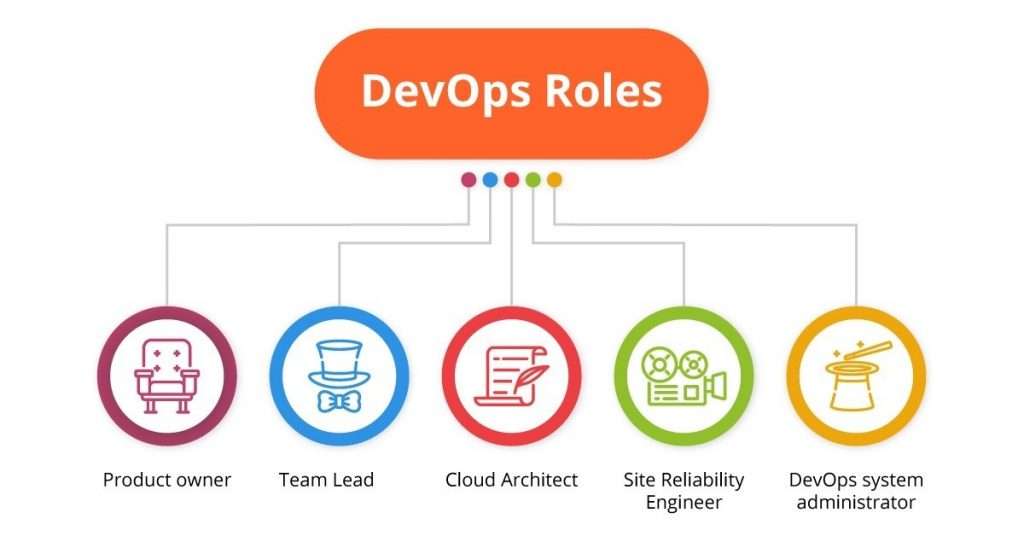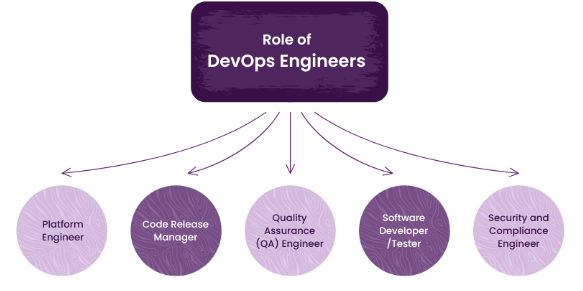
- Introduction to DevOps Engineering
- Roles and Responsibilities of a DevOps Engineer
- Salary Breakdown by Region and Experience
- Factors Affecting DevOps Engineer Salary
- Skills That Increase DevOps Engineer Salary
- Certifications for DevOps Engineers
- Career Growth in the DevOps Field
- Job Roles Related to DevOps Engineering
- Demand for DevOps Engineers in Different Industries
- Freelance vs Full-Time Salary Comparison
- Future Scope of DevOps Careers
- Conclusion
Introduction to DevOps Engineering
DevOps Engineering has become an essential practice for modern software development. DevOps, a combination of development and operations, is a set of practices aimed at automating and improving the collaboration between development and IT operations teams. The goal of DevOps is to reduce the time between writing code and deploying it into production, allowing for faster releases, better quality, and more consistent software delivery. DevOps engineering focuses on creating an integrated environment where continuous integration (CI) and continuous delivery (CD) pipelines, infrastructure as code (IaC), and monitoring tools ensure smooth collaboration, deployment, and maintenance of applications. DevOps engineers are the backbone of this culture, responsible for streamlining operations and ensuring that all processes, from development to deployment, are automated and efficient.
Roles and Responsibilities of a DevOps Engineer
DevOps Engineers have many responsibilities that bridge the gap between development and operations teams. Their primary role is to automate the processes of software development, deployment, and infrastructure management to improve the speed and quality of software releases. Here are the key responsibilities of a DevOps Engineer:
- Automation of Processes: Automating the manual deployment, testing, and monitoring processes to streamline the software development lifecycle. This includes setting up CI/CD pipelines to automate code integration, testing, and deployment.
- Infrastructure Management: Managing cloud infrastructure (AWS, Azure, Google Cloud) and on-premise resources using Infrastructure as Code (IaC) tools like Terraform, Ansible, and CloudFormation to ensure scalable and consistent environments.
- Collaboration and Communication: Working closely with development, QA, and operations teams to ensure software development and deployment alignment. This involves regular communication and collaboration to streamline processes and troubleshoot issues.
- Monitoring and Logging: Ensuring monitoring systems are in place to track application performance, server uptime, and resource utilization. Tools like Prometheus, Grafana, and ELK Stack are commonly used for effective monitoring and logging.
- Continuous Improvement: Constantly optimizing infrastructure and deployment pipelines to improve speed, reduce downtime, and enhance system performance. This includes identifying and resolving bottlenecks in the development process.
- Security and Compliance: Ensuring that security best practices are followed throughout the software development lifecycle, including implementing DevSecOps practices to address vulnerabilities and ensure compliance with industry standards.
Incident Management involves responding to incidents quickly and effectively to minimize downtime. DevOps Engineers are involved in troubleshooting production issues, conducting root cause analysis, and driving improvements to avoid recurrence.

Salary Breakdown by Region and Experience
The salary of a DevOps Engineer can vary widely depending on factors such as geographical location, experience, industry, and the company’s size. Here’s a general breakdown based on different regions and experience levels:
United States- Entry-Level (0-2 years): $70,000 – $95,000
- Mid-Level (3-5 years): $100,000 – $130,000
- Senior-Level (5+ years): $130,000 – $160,000+ Europe
- Entry-Level (0-2 years): €40,000 – €55,000
- Mid-Level (3-5 years): €60,000 – €85,000
- Senior-Level (5+ years): €90,000 – €110,000+ India
- Entry-Level (0-2 years): ₹5,00,000 – ₹8,00,000
- Mid-Level (3-5 years): ₹9,00,000 – ₹14,00,000
- Senior-Level (5+ years): ₹15,00,000 – ₹25,00,000+ Australia
- Entry-Level (0-2 years): AUD 70,000 – $90,000
- Mid-Level (3-5 years): AUD 95,000 – $120,000
- Senior-Level (5+ years): AUD 120,000 – $160,000+
These ranges are estimates and can fluctuate based on the specific company, job location, and the applicant’s skill set.
Factors Affecting DevOps Engineer Salary
The salary of a DevOps Engineer is influenced by several key factors. Experience is a major determinant, as professionals with extensive expertise in automation, infrastructure management, and problem-solving typically earn higher wages. Location also plays a crucial role, with high-cost cities like New York, San Francisco, and London offering competitive salaries to match living expenses. Industry demand impacts earnings as well, with DevOps Engineers in sectors such as finance, technology, and healthcare often receiving higher compensation due to the complexity of their responsibilities. Certifications and specializations, including AWS Certified DevOps Engineer, Docker Certified Associate, Kubernetes, and Azure DevOps, can further enhance earning potential by showcasing advanced skills. Company size is another factor—larger organizations with complex infrastructures tend to offer higher salaries, whereas startups may provide lower base pay but compensate with bonuses or equity. Additionally, expertise in sought-after tools like Kubernetes, Docker, Jenkins, Terraform, AWS, Azure, and Google Cloud can significantly influence salary offers.
Skills That Increase DevOps Engineer Salary
DevOps Engineers should focus on mastering foundational and advanced skills to command a higher salary. These skills include:
- Cloud Computing: Expertise in managing cloud platforms like AWS, Google Cloud, or Microsoft Azure is essential. Understanding cloud-native technologies and serverless architectures can further enhance your skill set.
- CI/CD: In the DevOps space, proficiency in creating and managing CI/CD pipelines using tools such as Jenkins, GitLab CI, CircleCI, and Travis CI is highly sought after.
- Containerization and Orchestration: Hands-on experience with Docker, Kubernetes, and other container orchestration platforms is critical for scaling applications efficiently.
- Infrastructure as Code (IaC): Mastering tools like Terraform, CloudFormation, and Ansible for automating infrastructure provisioning is a must-have skill for high-paying DevOps roles.
- Monitoring and Logging: Familiarity with monitoring tools such as Prometheus, Grafana, and ELK Stack helps ensure application reliability and performance.
- Automation and Scripting: Strong Python, Bash, or PowerShell scripting skills are needed to automate routine tasks and streamline workflows.
- Security (DevSecOps): Knowledge of integrating security practices into the DevOps pipeline ensures that applications are secure from the ground up.
- Collaboration and Communication: Strong interpersonal skills for cross-functional teams are essential for successful DevOps implementation.
Certifications for DevOps Engineers
Certifications can boost a DevOps Engineer’s earning potential by validating their skills and knowledge. Here are some top certifications for DevOps Engineers:
- AWS Certified DevOps Engineer – Professional: A highly recognized certification for professionals working with AWS to manage and automate infrastructure.
- Microsoft Certified: Azure DevOps Engineer Expert: Validates skills in designing and implementing DevOps practices on Microsoft Azure.
- Docker Certified Associate: A certification focusing on containerization and Docker best practices.
- Certified Kubernetes Administrator (CKA): Certifies expertise in deploying and managing Kubernetes clusters.
- Google Professional DevOps Engineer: Focuses on using Google Cloud to design, implement, and maintain CI/CD pipelines, ensuring reliability.
- HashiCorp Certified: Terraform Associate: Validates expertise in infrastructure automation using Terraform.
These certifications are particularly valuable as they demonstrate proficiency in the tools and practices that are central to the DevOps process.
Career Growth in the DevOps Field
The DevOps field presents numerous career growth opportunities as businesses increasingly prioritize faster and more efficient software delivery. At the entry level, DevOps Engineers develop expertise in automation tools, cloud platforms, and version control systems while gaining hands-on experience with CI/CD pipelines and cloud infrastructure management. As they progress to mid-level roles, typically after 3-5 years, they take on greater responsibilities, such as managing larger systems, designing cloud architectures, and implementing complex automation strategies. Senior DevOps Engineers often step into leadership positions, mentoring junior engineers, setting strategic directions for automation initiatives, and overseeing large-scale infrastructure projects. Career advancement can also lead to leadership roles such as DevOps Lead, DevOps Architect, or even VP of Engineering, where professionals oversee DevOps practices across entire organizations or multiple teams, shaping the overall technology strategy.
Job Roles Related to DevOps Engineering
In addition to DevOps Engineer, several other job titles align with or relate to DevOps practices:
- Site Reliability Engineer (SRE): SREs focus on system reliability, scalability, and availability, which aligns closely with DevOps practices.
- Cloud Engineer: A cloud engineer works specifically on cloud infrastructure, utilizing DevOps tools for deployment and maintenance.
- Automation Engineer: Specializes in automating various aspects of the software development lifecycle, from testing to deployment.
- DevOps Architect: Focuses on designing and implementing the DevOps strategy and infrastructure for organizations.

Demand for DevOps Engineers in Different Industries
DevOps Engineers are in demand across various industries due to the increasing reliance on cloud infrastructure, automation, and software delivery pipelines. Some of the sectors actively seeking DevOps professionals include:
- Technology: Cloud providers, software companies, and tech startups are always looking for skilled DevOps Engineers to manage their CI/CD pipelines and cloud infrastructure.
- Finance: Banks and financial institutions require robust, secure, and scalable infrastructure, making DevOps crucial for maintaining operational continuity.
- Healthcare: With stringent regulatory requirements and the need for efficient systems, the healthcare industry relies heavily on DevOps practices to deploy and manage secure, compliant cloud solutions.
- Retail and E-Commerce: The retail sector is undergoing a digital transformation, making DevOps essential for quickly rolling out new features, improving scalability, and ensuring high uptime for online stores.
- Gaming and Entertainment: High-performance, scalable infrastructures are crucial for online gaming and streaming platforms adopting DevOps practices to improve operational efficiency.
Freelance vs Full-Time Salary Comparison
Freelance DevOps Engineers often have the flexibility to set their rates but may face more variability in income due to project-based work.
- Freelance: Freelancers generally earn higher hourly rates but lack the stability and benefits of full-time employment. Depending on expertise and market demand, rates can range from $60 to $150+ per hour.
- Full-Time: Full-time employees enjoy benefits like health insurance, paid time off, and job security, but their salary tends to be lower than that of freelancers in terms of hourly rate. Wages for full-time DevOps Engineers range from $70,000 to $160,000+ annually.
Future Scope of DevOps Careers
The demand for DevOps professionals is only expected to grow, with more businesses adopting DevOps practices to streamline their software development and deployment processes. As the industry evolves, DevOps Engineers must adapt to new technologies and tools, including advancements in cloud computing, automation, machine learning, and AI operations (AIOps). The future of DevOps will likely see more integration with AI and automation tools to enable autonomous operations, as well as increased focus on security (DevSecOps) and compliance.
Conclusion
DevOps Engineering is a rapidly growing field with vast career potential. DevOps Engineers play a critical role in modern software development, from automating deployment pipelines to ensuring the scalability and security of applications. By mastering essential tools, obtaining certifications, and staying ahead of industry trends, DevOps professionals can enjoy high salaries, job security, and ample opportunities for career advancement. Whether full-time or freelance, the future of DevOps Engineering looks promising, with a continually increasing demand across industries.





